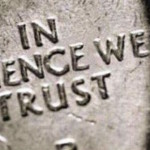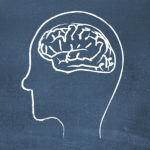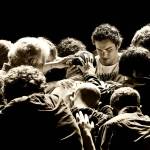The Science Delusion: An Interview with Atheist Curtis White
by Brandon Vogt
Filed under Atheism, Science
Many of today's most popular atheists, including Richard Dawkins and Sam Harris, encourage their listeners to give up religion and submit to science. They believe scientific method provides the best understanding not only of the physical world but also of art, culture, economics, and anything left over.
More recently, neuroscientists and their fans in the media have delivered a variation on this message: the mapping of the human brain will soon be completed, and we will know what we are and how we should act.
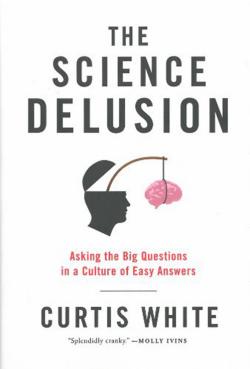 These trends are very problematic, according to atheist commentator Curtis White. In his new book, The Science Delusion: Asking the Big Questions in a Culture of Easy Answers, he argues that the rich philosophical debates of the eighteenth and nineteenth centuries have been nearly totally abandoned. And what has taken their place—a turn toward “scientism”—will produce disaster if left unchallenged. After all, is creativity really just chemicals in the brain? Is it wrong to ponder “Why is there something instead of nothing?” or “What is our purpose on Earth?” These were some of the original concerns of the Romantic movement, which pushed back against the dogmas of science in a nearly forgotten era.
These trends are very problematic, according to atheist commentator Curtis White. In his new book, The Science Delusion: Asking the Big Questions in a Culture of Easy Answers, he argues that the rich philosophical debates of the eighteenth and nineteenth centuries have been nearly totally abandoned. And what has taken their place—a turn toward “scientism”—will produce disaster if left unchallenged. After all, is creativity really just chemicals in the brain? Is it wrong to ponder “Why is there something instead of nothing?” or “What is our purpose on Earth?” These were some of the original concerns of the Romantic movement, which pushed back against the dogmas of science in a nearly forgotten era.
In his book, Curtis aims at a TED talk by a distinguished neuroscientist which claims that human thought is merely the product of our “connectome”—neural connections in the brain that are yet to be fully understood. He examines the ideas of a widely respected physicist who argues that a new understanding of the origins of the universe trumps all religious and philosophical inquiry. And he ends with an eloquent defense of the poetry and philosophy of Romanticism, which Curtis believes our technology- and science-obsessed world desperately needs to rediscover.
Curtis recently sat down with me to many of the ideas in his book.
Q: In your book, you spend several pages attacking "scientism", which you describe as the general belief that all questions—the origins of the cosmos, the basis of morality, the source of creativity—can be determined exclusively through science. On this view we don't need religion, philosophy, art, or literature to determine truth. Where did this belief come from and why is it so troubling?
Curtis White: I define “scientism” as the ideology of science, the way that science tells stories about itself, especially stories that are supportive of the social status quo. Of course, one of its basic stories is that it is about truth and does not do ideology, but that’s what all ideology says. We can talk about science ideology in a deep, historical sense in the Galilean worldview. Galileo proposed that the cosmos was constituted by discrete objects with a mechanical relationship to each other all of which could be adequately accounted for by mathematics. Of course, no physicist believes this today.
Many scientists still tell stories that go well beyond what can be accounted for by science itself. So, Richard Dawkins and Christopher Hitchens may proclaim the triumph of science as knowledge while reducing religion to a series of criminal anecdotes and ignoring the rich history of Western religion (they know less than nothing about Eastern religion). Why is it not important to them that the Existential Christianity of Kierkegaard, Karl Jaspers, and Paul Tillich is more about skepticism than it is about faith? Tillich denies the existence of some great Creator sitting idly beyond the world. He is a-theist. And yet he thought of himself as a Christian. Much the same is true of Slavoj Zizek in his book The Puppet and the Dwarf: the Perverse Core of Christianity. Dawkins and Hitchens and the rest of the New Atheists (there is quite a list of them now) appear ignorant of all this which has the unfortunate consequence of making the bulk of what they say patently false.
Q: The Science Delusion attempts to recover the poetry and philosophy of Romanticism, which our technology- and scientifically-obsessed world has mostly jettisoned. Why is the tradition of Romanticism necessary to see the world clearly?
Curtis White: Romanticism sits at a crucial juncture in Western history. Enlightenment rationality did enormous intellectual and social damage to the more naïve claims of Christianity. In the judgment of the Romantics there was no undoing the criticism of Voltaire and Thomas Paine. But they hated the Enlightenment’s rationalist disenchantment of the world, especially industrialism and its culture of “facts.” (See Charles Dickens’s Hard Times or William Blake’s poetry.) So the Romantics secularized Christian eschatology and called it the “dialectic.” I discuss in some detail Friedrich Schiller’s seminal description of the Romantic dialectic, and it looks an awful lot like the Christian movement from original innocence, to a fallen state, to redemption, and salvation. Schiller called these stages nature, culture (the “misery of culture”), art as redeemer, and our final “nobility” as fully realized humanity. The important point is that it is still very clearly a spiritual logic.
The Romantic eschatology has survived to the present. It surged up dramatically in the ‘60s counterculture, but it is still present now, even if repressed, in the “indy” culture of locavores, bands like Radio Head, Occupy Wall Street, local art scenes, etc.
The generous way of thinking about all this is to say that religion has evolved. The Romantic tradition may not believe in formal, fundamental Church doxology, but it is not possible without Christianity. This is all a major focus of my earlier book The Spirit of Disobedience, for Jesus was a very disobedient man.
Q: Another major focus in the book is the connection between the New Atheists and neuroscientists. In fact, you even claim "the message of neuroscience advocates is much the same as that of the so-called 'New Atheists', and that the two should be consider together." Why is this?
Curtis White: Well, both camps, if they are camps at all, are joined in the all too Galilean idea that everything can be explained in mechanistic terms, whether of genes or of neurons, and that there is no meaning to any of it. It’s all obscure meaningless activity on a marooned planet. The superb irony is that from all appearances the scientists don’t believe this about their own activities. The universe may be meaningless but science is not. Many scientists scrape in the most ignoble fashion after awards, Nobel prizes etc. The greatest accomplishment for a scientist is to have his peers agree to name a discovery or a math axiom after him. It is a curiously egoistic profession, especially given their grim conclusions about the “meaning of life.”
My argument is that there is something gloriously meaningful about our ability to look at the universe and judge its nature and even its meaning or lack thereof. I am persuaded, along with Buddhism, that our central spiritual task is to participate through this thing we call consciousness in making Being possible. Without consciousness and language or symbolic systems nothing exists if for no other reason than there is no being capable of the concept of “being.” Nothing to say, “this is.” The philosopher Martin Heidegger understood this, the great French (and very Catholic) composer Olivier Messiaen understood this, and poetry since Wordsworth has understood this.
Q: Modern neuroscientists seem focused on reducing all mental activity to brain events—to ultimately reduce you to your neurological connections. Are mind, consciousness, and creativity really nothing more than firing neurons?
Curtis White: This is where the book started for me, with Jonah Lehrer’s repellent argument (in Imagine: How Creativity Works) that all human creativity is the consequence of brain events, the dribbling out of chemicals like vasopressin. He seems quite unaware that creativity happens very little in the brain. It takes place in symbolic systems and within cultures and cultural traditions, and these are wonderfully and strangely “beyond” my brain, your brain, or the brain itself. A work of art takes place only in a symbolic system of words, notes, or paint that only exists because of a very long history or tradition that begins in the caves of Altamira. This is the extent of my mysticism. Through culture we participate in symbolic worlds that are beyond the brain, although they can’t exist at all without the brain. How we are to conjugate that paradox is the essence of the mystery of consciousness.
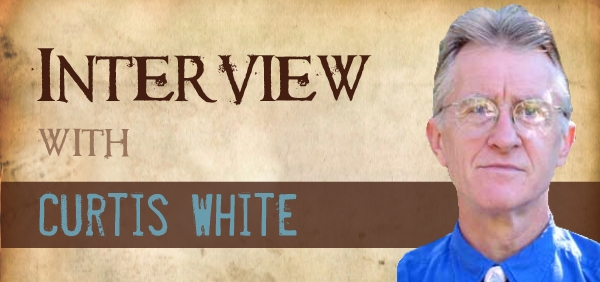
Related Posts
Note: Our goal is to cultivate serious and respectful dialogue. While it's OK to disagree—even encouraged!—any snarky, offensive, or off-topic comments will be deleted. Before commenting please read the Commenting Rules and Tips. If you're having trouble commenting, read the Commenting Instructions.





